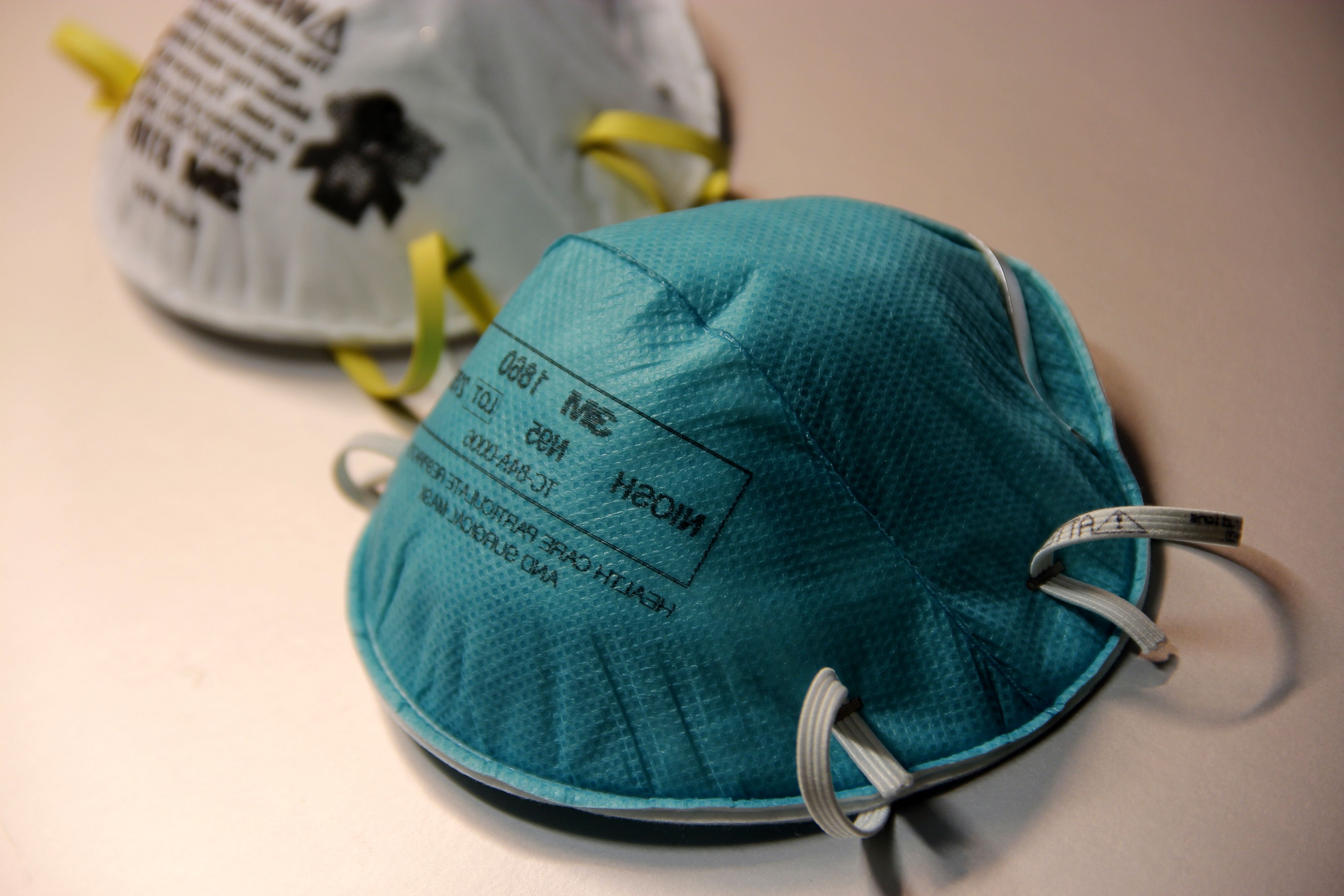N-95 Respiratory Protection Program
The ISU N95 respiratory protection plan was created and implemented in 2020 during the COVID-19 pandemic in order to provide training and PPE to students during their clinical rotations while also alleviating medical facilities from having to provide the process to students. EHSS continues to provide this support to aid faculty, staff, and students to protect their respiratory health while performing their duties in a clinical setting. The process requires three steps which include:
- Annual Complete a Moodle Training Course
- Annual Medical Evaluation
- Annual Fit Testing

An N-95 is a particulate-filtering facepiece respirator that meets the U.S. National Institute for Occupational Safety and Health (NIOSH) N95 classification of air filtration. An N95 filters at least 95% of small sized airborne particles down to 0.3 microns. N signifies that it is not resistant to oil. The N-95 type is the most common particulate-filtering facepiece respirator.
Is a KN95 the same thing?
They are similar but not the same. Both masks are rated to capture 95% of particles down to 0.3 microns. The key difference comes from the N95s breathability due the pressure drop requirements and NIOSH approval within clinical settings
If you are a student please contact your clinical coordinator, program director, or instructor. Mask Guidance- Students in Clinical Experiences
Clinic coordinators, program directors, or instructors requiring N-95 fit testing services for employees or students should contact EHS for assistance.
EHSS will:
- Verify the need for N-95 respirators.
- Provide an access code for the Moodle training and medical evaluation
- Schedule N-95 fit-testing for employees or students.
Please contact our Health and Safety Technician in order to receive a hazard assessment based on the Respiratory Protection Program to best determine the type of respirator you need for your duties. EHS will follow up with instructions on how to best proceed within the Respiratory Protection Program.
You will find the medical questionnaire as a final downloadable and printable document through the Moodle N95 training. This questionnaire once completed should be sent to healthcenter@health.isu.edu which is the Student Health secure email.
Depending on the influx of submissions to student health it can take up to 4 - 5 days for a medical questionnaire to process. If there are any questions or concerns about a pending medical questionnaire please contact your coordinator or EHS at 208-282-2310.
EHS is currently using a qualitative method of fit testing which involves the participant being briefly hooded and introduced to a strongly flavored solution being either bitrex or saccharin. The test itself will take a minimum of 10 minutes. Once completed with a fitting N95 the participant will receive a fit test card documenting the date of the test and the model of the N95 used for future reference or to provide to clinic/coordinator. Participant may also receive a count of N95s from EHS dependent on what was coordinated by the department and necessity.
For more information on the solutions used please refer to the SDS below.
Bitrex Sensitivity Solution SDS
Bitrex Fit Testing Solution SDS
Saccharin Sensitivity Solution SDS
Saccharin Fit Testing Solution SDS
If there are any questions or concerns please contact EHS 208-282-2310
A clean shaven face is required by OSHA for individuals wearing (or being fitted for) a tight fitting respirator. This includes an N-95 and any other filtering face piece respirator. The purpose of the requirement is to protect the individual wearing the respirator.
NIOSH and the CDC have worked together to compile the infographic below illustrating which facial hairstyles will and will not work with a respirator. EHS utilizes this guidance when performing respirator fit tests. This CDC Facial Hair Guide is available for printing and sharing.

